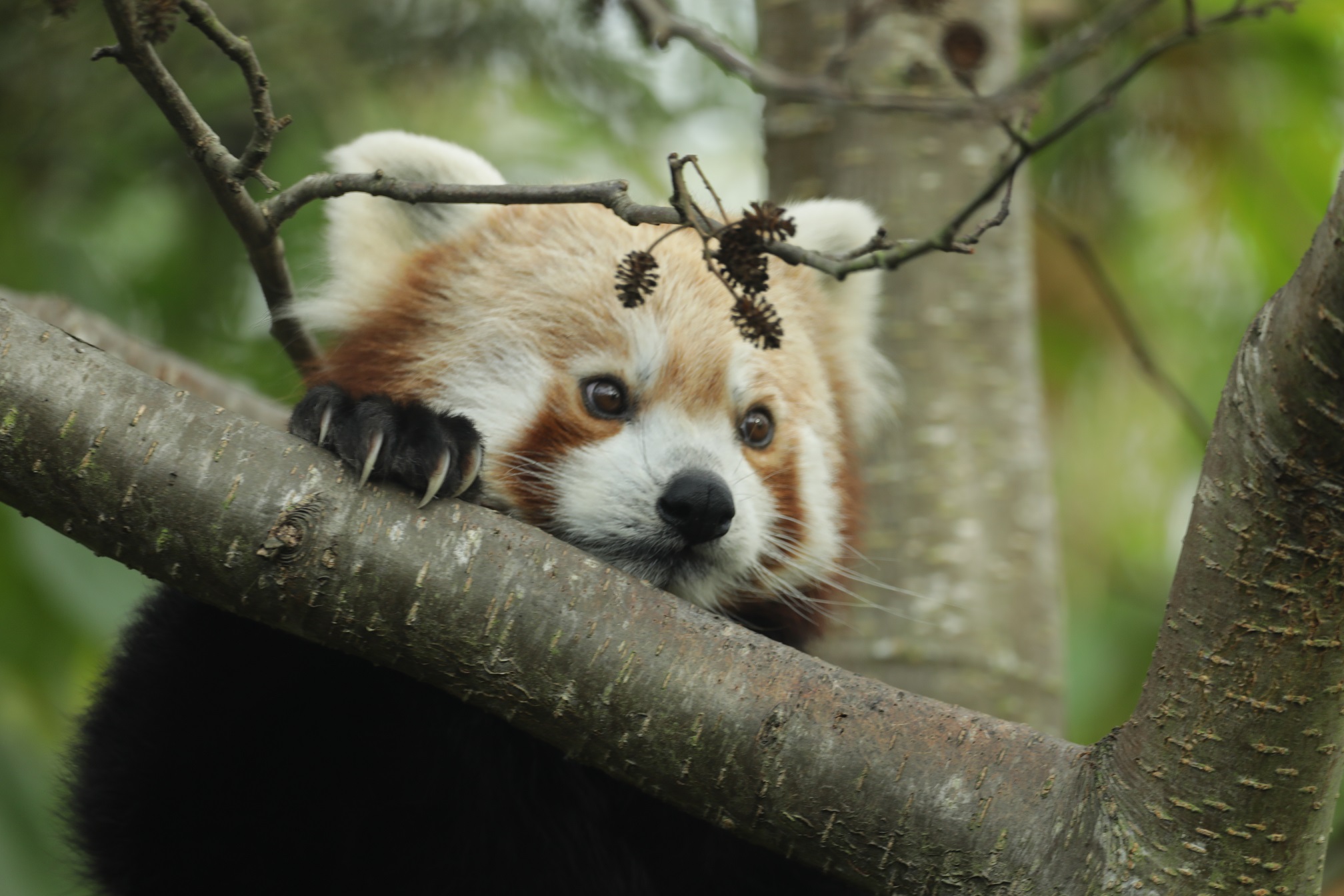Geriatric care for Victoria the polar bear
Posted 19 Dec 2024

Visitors to Highland Wildlife Park will be familiar with our four polar bears – Victoria, Brodie, Arktos and Walker.
Victoria, Brodie’s mum, is our oldest polar bear, and at the grand old age of 28 she’s beginning to slow down a wee bit. Our keepers noticed her struggling to keep up with Brodie, and she had stopped demonstrating some physical behaviours such as climbing on her back legs. The vet team were asked to check on her to see if we could help. It was clear from her movements that Victoria has some pain in her joints, likely associated with arthritis which is very common in older animals.
We began doing some positive reinforcement training with her, which involved teaching her to put her foot in a specially designed ‘sleeve’ and to respond well to gentle pressure with a blunt needle. After a few weeks, we were able to take a blood sample and check her organ health status which turned out to be very good! This meant we were able to safely start her on medication to help with the discomfort in her joints as part of the geriatric care we are now providing for her.
What is geriatric care?
As animals age, they can become more susceptible to age-related diseases such as arthritis, heart conditions, dental problems, and vision or hearing loss. Geriatric care involves regular health assessments to detect these issues early, allowing for timely intervention that can improve their quality of life and prevent serious complications.
Older animals may experience chronic pain due to conditions like arthritis or muscle degeneration. Geriatric care focuses on managing pain, which can help them remain comfortable and mobile. This is particularly important for animals like polar bears, whose size can make them more prone to joint stress and discomfort.
With appropriate care, older animals can continue to engage in their natural behaviours, maintain a good appetite, and stay mentally stimulated, which is incredibly important for their wellbeing. Enrichment activities, social interaction, and positive reinforcement training can help elderly animals remain active and alert.
Just like humans, proper geriatric care may even help extend the lifespan of animals. By addressing health concerns early and providing tailored care, older animals can live more comfortably and for longer periods. Providing geriatric care also ensures that they are not simply enduring old age but are supported in a way that meets their needs and preserves their wellbeing.
How is Victoria responding to geriatric care?
We’re thrilled that since starting the medication Victoria has a new lease of life. She is able to climb again and can even beat Brodie to the breakfast table! She has also really benefitted from the stimulation of regular training, becoming more alert and more keen to engage with enrichment activities.
It’s great that Victoria has responded so well to her training and treatment after all the hard work our vet and keeper teams have put in. We will continue to carry out positive reinforcement training with her, as it allows us to keep a close eye on her health status and regular ‘geriatric assessments’ help us to track her progress.
Like all our animals, our polar bears are amazing ambassadors for their species in the wild and they play a vital role in inspiring and educating our visitors about the natural world. The progress we’ve seen in Victoria’s health in recent months is testament to the hard work of our dedicated teams of keepers and vets, and we’ll be sure to keep you all updated as we continue to care for her at this gentle stage of life.
Dr Rebecca Amos
Veterinary Surgeon

